Archaeology news archive 2017-2022
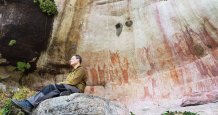
University of Exeter leads global rock art symposium in the Amazon
Archaeologists at the University of Exeter are playing a leading role in a first-of-its-kind global event that will showcase ancient rock art from the earliest humans to enter the Amazon.

Famine and disease drove the evolution of lactose tolerance in Europe
Prehistoric people in Europe were consuming milk thousands of years before humans evolved the genetic trait allowing us to digest the milk sugar lactose as adults.

Ice Age wolf DNA reveals dogs trace ancestry to two separate wolf populations
An international group of geneticists and archaeologists have found that the ancestry of dogs can be traced to at least two populations of ancient wolves.
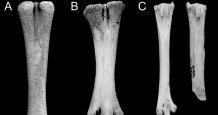
Major new international research reveals new evidence about when, where, and how chickens were domesticated
New research transforms our understanding of the circumstances and timing of the domestication of chickens.

Newly discovered ancient Amazonian cities reveal how urban landscapes were built without harming nature
A newly discovered network of “lost” ancient cities in the Amazon could provide a pivotal new insight into how ancient civilisations combined the construction of vast urban landscapes while living alongside nature.

Exeter’s museum to host a pop-up exploring the future of the High Street
The pop-up, RAMM about Town, is a pilot project of the Creative Arc, a unique collaboration between the University of Exeter, Exeter City Council, Art Work Exeter, and the Royal Albert Memorial Museum (RAMM).

Experts develop new ways of visualising ancient small objects by combining technologies from archaeological research, computer graphics and video game development
Experts have developed new ways of visually representing ancient objects such as stone tools and fossils developing technologies currently only used in video games and computer graphics.

Migration across South America led to intensive farming methods spreading across the region, study shows
Human migration from South America back into Mesoamerica thousands of years ago led to the spread of intensive farming methods across the region, according to a new study.
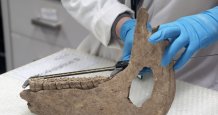
Medieval warhorses were surprisingly small in stature, study shows
Medieval warhorses are often depicted as massive and powerful beasts, but in reality many were no more than pony-sized by modern standards, a new study shows.

Ancient DNA reveals the world’s oldest family tree
Analysis of ancient DNA from one of the best-preserved Neolithic tombs in Britain has revealed that most of the people buried there were from five continuous generations of a single extended family.

Digital volunteers set to make big impact for the University of Exeter thanks to National Lottery funding
The University of Exeter has been awarded £63,246 of National Lottery funding to launch a digital volunteering initiative and break down barriers to heritage.

The mystery of horse domestication decoded at last - success of modern horses due to genetic changes which led to more docile behaviour and an improved back
Modern horses owe most of their success to genetic changes which led to more docile behaviour and an improved back, a new study shows.
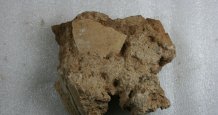
Ancient ostrich eggshell reveals new evidence of extreme climate change thousands of years ago
Evidence from an ancient eggshell has revealed important new information about the extreme climate change faced by human early ancestors.
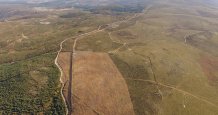
Experts discover camp used by 10,000 Roman soldiers sent to conquer Northwest Iberia
Pioneering technology has helped experts find a lost camp built and used by thousands of Roman soldiers sent to conquer Northwest Iberia.

Major discoveries about rock art across the world showcased at research symposium
Experts will showcase incredible discoveries about rock art around the globe at a symposium this week.
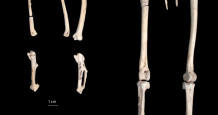
Ancient chickens lived significantly longer than modern fowl because they were seen as sacred – not food – study shows
Ancient chickens lived significantly longer than their modern equivalents because they were seen as sacred – not food – archaeologists have found.
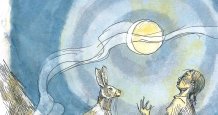
Experts trace links between hare goddesses worshipped for thousands of years
Communities in Britain have worshipped different goddesses associated with hares for thousands of years, a study by a team of experts working to trace the mysterious origins of Easter traditions shows.
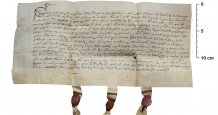
Lawyers used sheepskin as anti-fraud device for hundreds of years to stop fraudsters pulling the wool over people’s eyes, study shows
Medieval and early modern lawyers chose to write on sheepskin parchment because it helped prevent fraud, new analysis suggests.
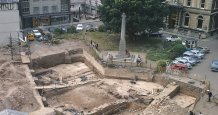
Major new study shows ancient international trading routes between Exeter and Europe
Cutting-edge scientific techniques used to study ancient artefacts found in Exeter have revealed more about the ancient international trading routes between the city and Europe.
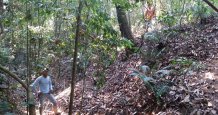
Ancient Amazonian farmers fortified valuable land they had spent years making fertile to protect it from conflict
Ancient Amazonian communities fortified valuable land they had spent years making fertile to protect it from conflict, excavations show.
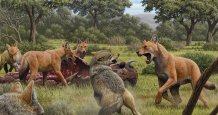
Ancient DNA reveals secrets of Game of Thrones wolves
An extinct species of wolf made famous in the TV show Game of Thrones split off from others nearly six million years ago and are only a distant relative of today’s wolves, researchers have found.
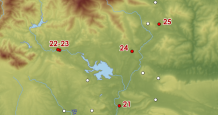
Discovery of 66 new Roman Army sites shows more clues about some of the empire’s most infamous conflicts
The discovery of dozens of new Roman Army sites thanks to remote sensing technology has revealed more about one of the empire’s most infamous battles.
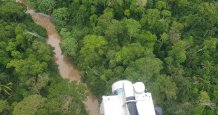
Newly discovered ancient villages laid out like a clock face are further proof of human impact on the Amazon
Ancient Amazonian villages laid out like a clock face have been discovered by experts, thanks to technology that allows them to see below the rainforest canopy.

Newly discovered Amazon rock art show the rainforest’s earliest inhabitants living with giant Ice Age animals
Amazonian rock art newly discovered by researchers provides further proof the rainforest’s earliest inhabitants lived alongside now-extinct giant Ice Age animals.
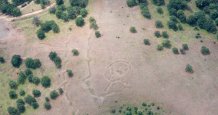
Public can explore hundreds of new prehistoric, Roman and medieval archaeological sites identified through aerial reconnaissance
The public can explore hundreds of new prehistoric, Roman and medieval sites discovered in Romania by archaeologists using aerial reconnaissance.
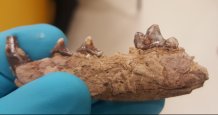
Ancient hunters stayed in frozen Northern Europe rather than migrating to warmer areas, evidence from Arctic fox bones shows
Ancient hunters stayed in the coldest part of Northern Europe rather than migrating to escape freezing winter conditions, archaeologists have found.
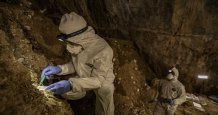
Earliest humans stayed at the Americas ‘oldest hotel’ in Mexican cave
A cave in a remote part of Mexico was visited by humans around 30,000 years ago – 15,000 years earlier than people were previously thought to have reached the Americas.
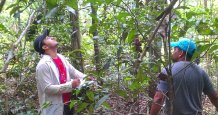
Innovation by ancient farmers adds to biodiversity of the Amazon, study shows
Innovation by ancient farmers to improve soil fertility continues to have an impact on the biodiversity of the Amazon, a major new study shows.
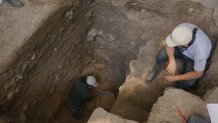
“Unparalleled” discovery of ancient skeletons sheds light on mystery of when people started eating maize
The “unparalleled” discovery of remarkably well-preserved ancient skeletons in Central American rock shelters has shed new light on when maize became a key part of people’s diet on the continent.
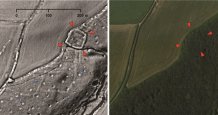
Dozens of prehistoric, Roman and medieval sites discovered by archaeology volunteers working at home during lockdown
Dozens of previously-unrecorded Roman, prehistoric and medieval sites have been discovered by archaeology volunteers based at home during the coronavirus lockdown.
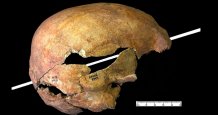
Grizzly discovery of an arrow through the eye sheds light on horrific injuries caused by medieval arrows
Medieval arrows caused injuries similar to today’s gunshot wounds, according to archaeologists analysing newly discovered human remains.
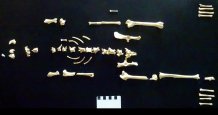
Brown hares and chickens were treated as “gods” not food when they arrived in Britain, research shows
Brown hares and chickens were considered “gods” rather than food when they were first arrived in Britain in the Iron Age, new research shows.
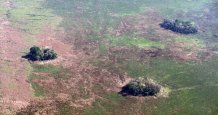
Earliest humans in the Amazon created thousands of “forest islands” as they tamed wild plants for food, study shows
The earliest human inhabitants of the Amazon created thousands of artificial forest islands as they tamed wild plants to grow food, a new study shows.
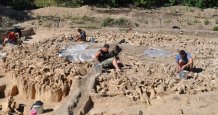
Mysterious bone circles made from the remains of mammoths reveal clues about Ice Age
Mysterious bone circles made from the remains of dozens of mammoths have revealed clues about how ancient communities survived Europe’s ice age.
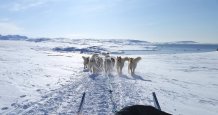
Unique sledge dogs helped the Inuit thrive in the North American Arctic
A unique group of dogs helped the Inuit conquer the tough terrain of the North American Arctic, major new analysis of the remains of hundreds of animals shows.

New partnership will help experts discover more about the history of Devon’s most illustrious family
A new partnership between the University of Exeter and Powderham Castle will help experts to continue to discover more about Devon’s most illustrious family.
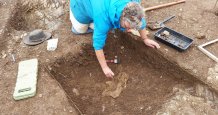
Discovery of rare Roman cattle bones sheds new light on ancient farming
The “incredibly rare” discovery of Roman cattle bones by archaeologists has shed new light on how ancient farmers butchered and sold meat.
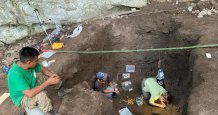
Ancient stone tools found in remote rock shelter reveal vital clues about life in ancient Central America
Ancient stone tools found in remote rock shelters have revealed new clues about life in ancient Central America.

Roman road and possible mine discovered during Cornish archaeological excavations
Archaeologists have discovered a Roman road and possible ancient mine during excavations in Cornwall as they work to discover more about the history of the county.
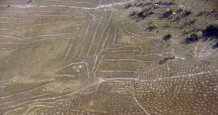
Climate change had significant impact on Amazon communities before arrival of Europeans, study shows
Climate change had a significant impact on people living in the Amazon rainforest before the arrival of Europeans and the loss of many indigenous groups, a new study shows.

Huge growth in use of quartz for tools shows sophistication of ancient communities
A growth in the use of crystal quartz to make tools thousands of years ago shows the sophistication of ancient communities, according to new research.
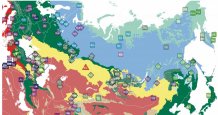
Genetic data allows detailed picture of the history of inner Eurasia to be revealed for the first time
An international team of researchers has used genetic data from hundreds of people – as well as archaeological finds – to construct the most detailed picture of the history of inner Eurasia for the first time.
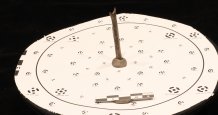
Britain’s earliest bunny found at Roman palace
Experts have found the remains of Britain’s earliest rabbit - a discovery which reveals bunnies arrived in the country 1,000 years earlier than previously thought.
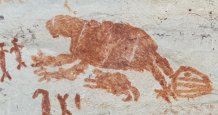
Major new study will rewrite history of human colonisation of South America
A major new study will uncover the secrets of how humans colonised one of the most challenging landscapes on earth - and the legacy of their actions on today’s plants and wildlife.

Experts discover complex history of maize domestication
Maize has been a staple part of diets in South America for almost 9,000 years, but the process to make the plant suitable to eat was far more complex than previously thought, experts have found.

Archaeologists to explore hidden past of one of Devon’s oldest buildings used by rulers and nobility
Archaeologists are hoping to discover more about the prehistoric, Roman and medieval history of a building used by Kings and Devon’s most important families.
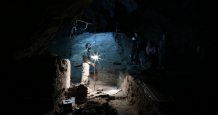
DNA discovery gives new insight into ancient history of South America
The discovery of ancient DNA from the earliest inhabitants of South America has revealed important new information about how people settled in the Americas.
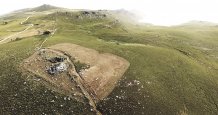
Remains of weapons, sandals and coins shed new light on Roman conquest of Northwest Iberia
Newly discovered remains of weapons, hobnails from sandals and coins will help experts piece together the untold story of how the Romans won control of Galicia and Northern Portugal from local tribes for the first time.

Ancient household waste gives more clues about Devon’s Roman history
Recently discovered household waste thrown away by families thousands of years ago will provide valuable clues for archaeologists uncovering the secrets of Devon’s Iron Age, Roman, and Medieval history.
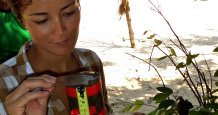
Ancient farmers transformed Amazon and left an enduring legacy on the rainforest
Ancient communities transformed the Amazon thousands of years ago

National Lottery players help people become archaeologists and explore the history of the South West
People in Devon and Cornwall will work with archaeologists to explore the incredible ancient history
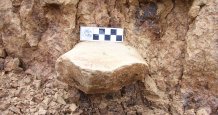
Discovery of ancient tools in China suggests humans left Africa earlier than previously thought
Ancient tools and bones discovered in China by archaeologists suggest early humans left Africa and arrived in Asia earlier than previously thought.
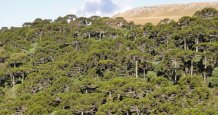
Critically-endangered South American forests were man-made
Critically endangered South American forests thought to be the result of climate change were actually spread by ancient communities
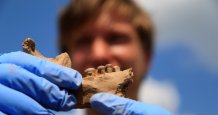
New research shows prehistoric hunter-gatherers were the first people to ride horses and explores its impact on migration and languages
A new study has discovered that horses were first domesticated by hunter-gatherer descendants in Kazakhstan

Work to highlight Perranporth’s mining history wins at the first Cornwall Heritage Awards
Work by archaeologists and historians to highlight Perranporth’s incredible mining history has been honoured at the first Cornwall Heritage Awards.
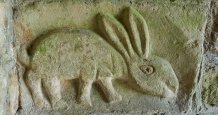
Public invited to play detective and join exciting new hunt for the Easter bunny
The public can play detective and help experts solve the mystery of the origins of the Easter bunny as part of a different kind of Easter hunt this year.
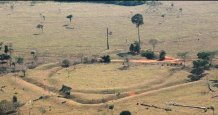
Parts of the Amazon thought uninhabited were actually home to up to a million people
Parts of the Amazon previously thought to have been almost uninhabited were really home to thriving populations of up to a million people, new research shows.
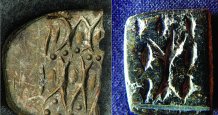
Local communities responsible for birth of farming in Central Turkey, archaeological excavations show
Local communities were responsible for the beginning of farming in Central Turkey 10,000 years ago and not migrants, archaeologists have discovered.
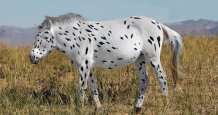
Pioneering research into the family tree of today’s horses sheds new light on the origins of the species.
The earliest known domesticated horses are not at the root of today’s modern breed’s family tree, as had previously been thought, new research has shown.

Are bones discovered under an Exeter street from the first turkey dinner in England?
Bones dug up from under an Exeter street may be the remains of the first ever turkey dinner in England, archaeologists believe.

Amazonian farmers discovered the secret of domesticating wild rice 4,000 years ago
Amazonian farmers discovered how to manipulate wild rice so the plants could provide more food 4,000 years ago, archaeologists have discovered.

Mining history of iconic cliff-scape at Perranporth set to be studied for the first time
Experts are studying the little-known mining history of the vulnerable cliffs overlooking the beach at Perranporth to show if the search for tin and copper in the area began in medieval or even prehistoric times.
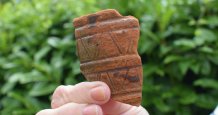
Rare archaeological find could be the first time unique pottery seen in the South West
Archaeologists excavating a site where Iron Age, Roman, and early medieval communities lived for more than a thousand years have unearthed pottery believed to have never been seen before in the South West.

Ancient Devon community had a taste for exotic food and drink
Devon farmers who made their home in the same remote location for 1,200 years had a taste for exotic imported food and drink, archaeologists have found.

First archaeological survey of Exeter Cathedral Green for a generation to take place
The first full-scale archaeological survey of Exeter’s Cathedral Green is taking place as experts try to find out what secrets still lie beneath the ground in the ancient area.
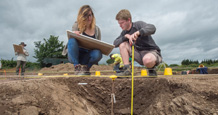
Communities to work with archaeologists to research history of Devon and Cornwall, thanks to National Lottery players
Communities in Devon and Cornwall will be able to research the history of Roman, Iron Age and medieval settlements in the region by helping experts on a major archaeological dig and associated surveys this year.

Hundreds of ancient earthworks built in the Amazon
The Amazonian rainforest was transformed over two thousand years ago by people who built hundreds of large, mysterious earthworks.

Real Game of Thrones brought anarchy to the UK, experts find
England’s first civil war, a real Game of Thrones power struggle between two cousins, brought anarchy to the UK in the twelfth century AD.
